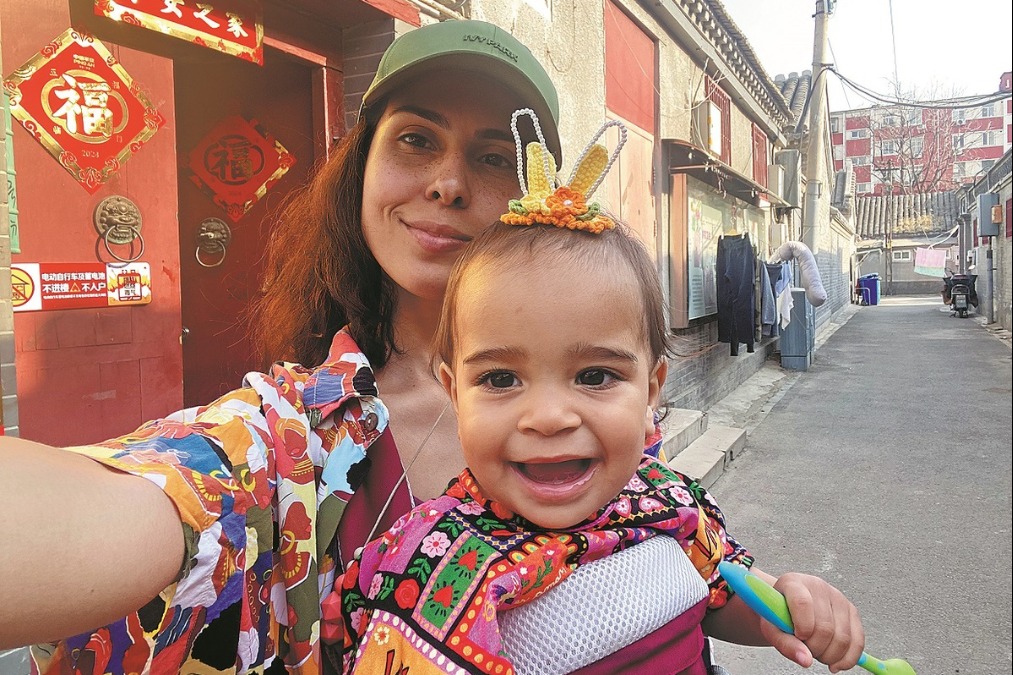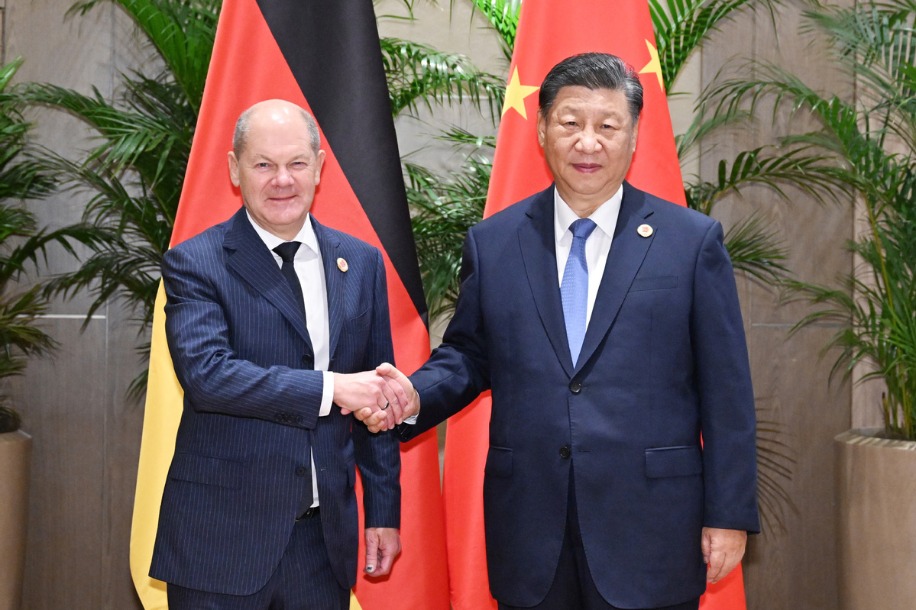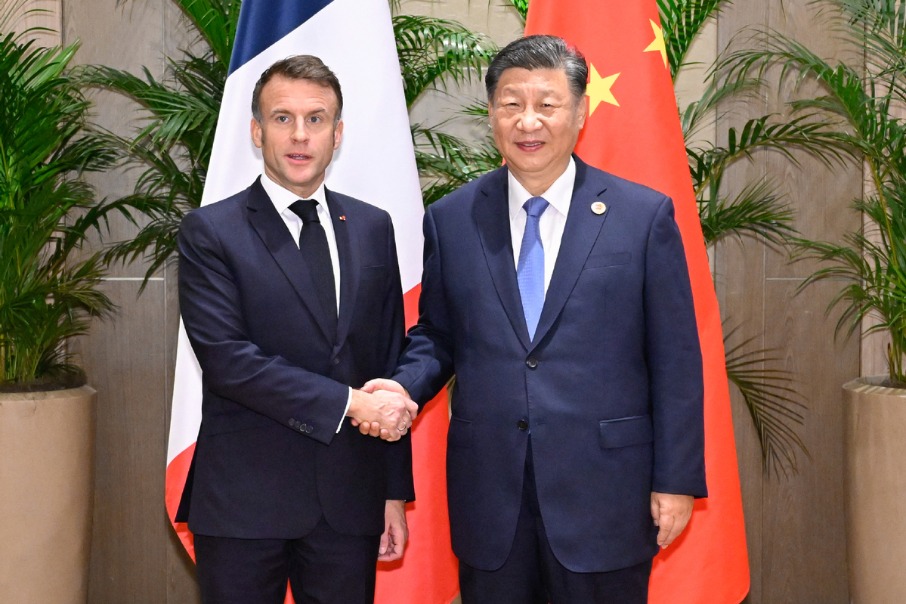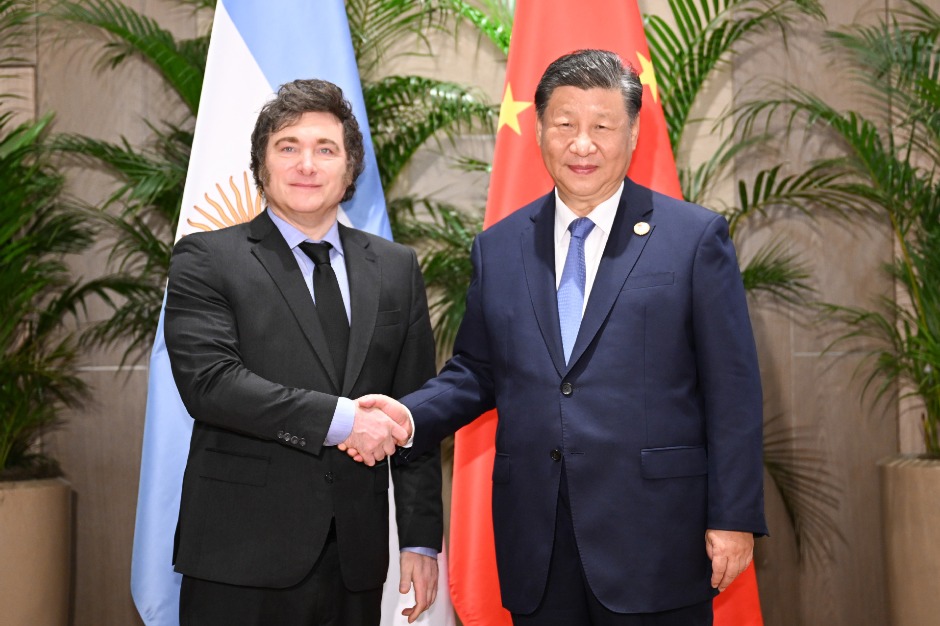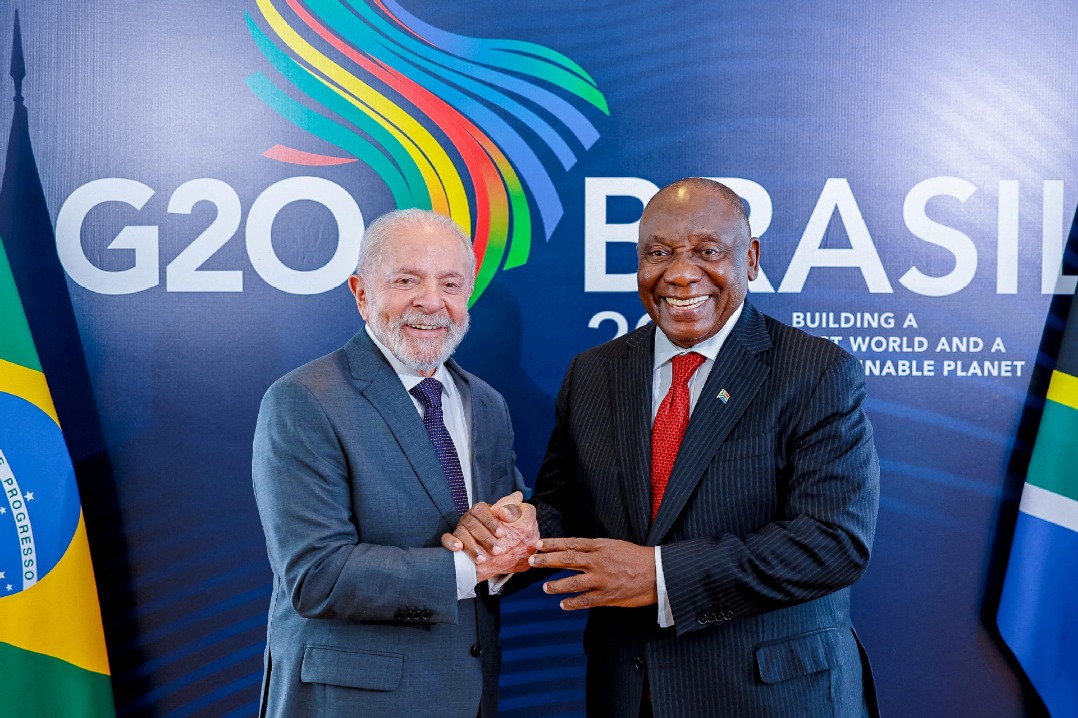The life and times of Dr K the conciliator
As a young man, he was exposed to the ravages of tyranny and war, and he would later champion the cause of bringing two nations together
By ZHAO XU in New York | China Daily Global | Updated: 2024-01-26 10:33
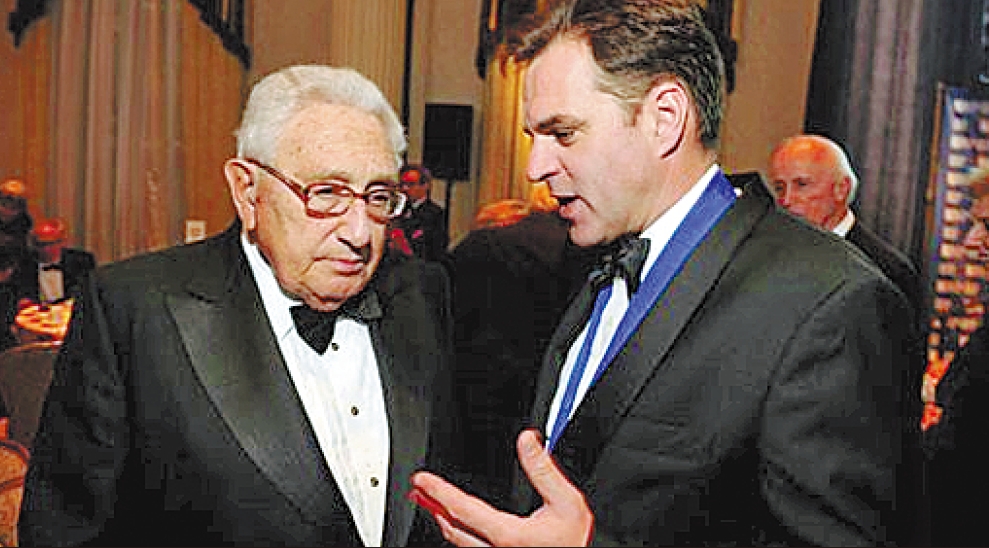
Legitimacy, equilibrium
"The outcome of their (the great powers') interlocking ambitions and inhibitions would be equilibrium," he wrote. "Legitimacy as used here should not be confused with justice. … An international order accepted by all of the major powers is 'legitimate' whereas an international order not accepted by one or more of the great powers is 'revolutionary' and hence dangerous."
Such assertions have long fueled the charge that Kissinger was a power manipulator and a proponent of realpolitik for whom "equilibrium … is order. It amounts to justice," to quote the French political scientist Stanley Hoffman.
"An amalgam of humanist concerns and realist calculations" was how Wu Xinbo, director at the Center for American Studies at Fudan University in Shanghai, put it. "Like most humanists, Kissinger is preoccupied with the question of war and peace. But instead of steeping himself in pure idealism, he charted a course through the tempestuous waters of international politics, where survival requires a mindfulness of the relative military and psychological strength of each party, as well as an understanding of their historical and domestic realities. When he emerged, he emerged with realistic answers."
In 1972 Nixon's China visit proved a huge success with the US public, whose pain induced by the Vietnam War was "eased and put into perspective by the dramatic opening to one-quarter of the world's population", Lord said.
Superman outfit-donning Kissinger blasted onto a June 1974 edition of Newsweek as Super K. The previous year, after calling Time's managing editor in person to try unsuccessfully to pull himself off its cover, Kissinger appeared alongside Nixon in the magazine's Jan 1, 1973, issue of co-men of the year.
The relationship is characterized by "wariness and co-dependence", said Walter Isaacson, a former Time editor, in his 1992 book Kissinger: A Biography. Nixon, restive at the potential publicity Kissinger might generate for himself, had been "merciless in toying with him on the issue (of who would go to China)"in the days before the secret visit, Isaacson said.
In his 2016 interview with Lord, Kissinger conceded that "the final decision was always the president's", paying ultimate tribute to Nixon, who had never failed to back his tactical move as Kissinger bestrode the world stage dealing with everyone from Israel's Golda Meir to Egypt's Anwar Sadat and Syria's Hafez al-Assad.
"One more Middle East swing like this and I'll be aged," Kissinger told Zhou Enlai during a later meeting, referring to his mediating efforts undertaken upon the outbreak on Oct 6, 1973, of the Yom Kippur War, fought between Israel and a coalition of Arab states led by Egypt and Syria.
"The shuttle diplomacy", as it was called, went on for about a year, during which Valeriani, the veteran journalist who was never sitting too far behind Kissinger on the plane, watched as Kissinger "grew in girth as well as in stature, eating when he was nervous, nervous when he was negotiating and negotiating all the time".
The apparent weight gain meant that Kissinger's hiking on the Fragrant Mountains of Beijing during his October 1975 visit "was all downhill", Valeriani said. On the same visit Kissinger, who brought with him his second wife Nancy Maginnes, also met Mao for the fifth and final time. The chairman, aging and in poor health, looked up at Maginnes and down at Kissinger with an exaggerated gesture, playing the comic as he noted the big difference in their heights.
During their first meeting in 1972, Mao impressed Kissinger as having "the quality of being at the center of wherever he stood", to use the latter's words. Despite the physical condition that rendered Mao's speech slurred, making him reliant on a translator, the Chinese leader would pull it off again.
"It's always extraordinary to me how much Mao is on top of things," Kissinger, who some believe had tried to cultivate in himself the same aura he saw in world leaders including Mao, later marveled. "For example, he knew the entire content of the talk I had had the previous night with Teng (Deng Xiaoping) in great detail. There's no way they could have done this orally. He had to have read it. So, you know, he's still very much there."
In the ensuing years many more times Kissinger would meet Deng, who, not long after Mao died, assumed the country's leadership and oversaw the establishment of formal US-China diplomatic ties in 1979. He would return again and again to exchange views with successive generations of Chinese leaders willing to seek his counsel. He traveled to China more than 100 times, the last trip in July, during which he was received by President Xi Jinping.
During a visit in 2013, Kissinger sat down to talk with students at the Center for American Studies of Fudan University in an event that Wu hosted. When a student joked that his name sounded like "kiss-girl", the 90-year-old answered by saying that "power is an aphrodisiac", a saying of Napoleon Bonaparte that Kissinger had earlier popularized through paraphrasing.
Commenting on the fact that at the height of his power, Kissinger was often seen with beautiful women including Hollywood stars and socialites, Lord, who attended Kissinger's 1974 wedding with Maginnes, said that the former long-time aide to the New York governor Nelson Rockefeller was "really the only person he liked (in those days)".
"It was all publicity and part of building a mystique," Lord said, recalling Kissinger "taking an attractive journalist to dinner in a Paris restaurant", right after one of his secret talks with Le Duc Thos, his North Vietnamese counterpart with whom he negotiated the Paris Accords.
Both men were awarded the 1973 Nobel Peace Prize, and two Nobel committee members resigned in protest on the grounds that Kissinger had ordered the bombing of Hanoi during the cease-fire negotiations. While Le Duc Thos declined the award, Kissinger offered to return it after Saigon (Ho Chi Minh City), the capital of South Vietnam at the time, was captured by North Vietnamese forces on April 30, 1975.
Lord, alluding to the intense controversy surrounding his mentor, "a complex, flawed personality", said, citing the Canadian poet and songwriter Leonard Cohen: "There is a crack in everything. That's how the light gets in.
"Kissinger had a picture of a gorilla in his office, with a caption directed to his staff that roughly went: 'If I want your views on something, I'll beat them out of you'."
Lord said that in his speech-writing days for Kissinger he was routinely pushed by the latter to revise his writing to the sixth draft. Once, to test whether Kissinger had read his submissions carefully, Lord inserted in the middle of his report on Cambodia a sentence consisting of the titles of several Kissinger books. The boss, a prolific writer of heavy and intellectually hefty tomes, duly spotted it.
According to Ferguson, Kissinger stopped talking to him for three months after reading the draft of his 2015 biography, which covered Kissinger's years up to the eve of his appointment by Nixon as his national security adviser in January 1969.
"He felt that the book was too revealing," Ferguson said.
In July 1972, after the US chess grandmaster Bobby Fischer threatened to walk out on the symbolic world championship chess match with the titleholder Boris Spassky of the Soviet Union, Kissinger rang Fischer to persuade him to go. Kissinger, "a serious chess player in his youth", according to Ferguson, would open the conversation by saying that "this is the worst chess player in the world calling the best one".
About that time, he refused to play chess with the Soviet ambassador to the US Anatoly Dobrynin, who called him "the only person who had learned to eat caviar with chopsticks", because "that would reveal too much about my personality and psychology", Ferguson quoted Kissinger as saying.





